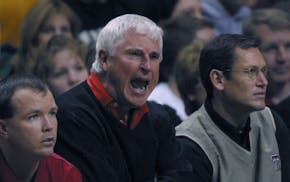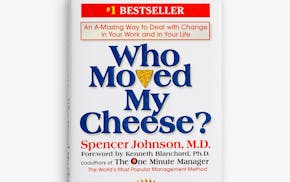In the "Peanuts" comic strip by Charles Schulz, the scene is a classroom on the first day of school. The students have been asked to write an essay about their feelings on returning to school.
In her essay, Lucy wrote: "Vacations are nice, but it's good to get back to school. There is nothing more satisfying or challenging than education, and I look forward to a year of expanding knowledge."
The teacher compliments Lucy on her fine essay.
Leaning over to Charlie Brown, Lucy whispers, "After a while, you learn what sells."
Sales is the lifeblood that drives business. As I always say, there are no jobs unless someone brings the business through the front door. No matter what field you're in, you'll sell better by remembering these key pieces of sales wisdom:
Satisfy the customer. There's a meat counter in the supermarket in my neighborhood. There are always three or four clerks waiting on customers. But one of the clerks always has customers waiting for him even if one of the other clerks isn't busy.
One day I asked him the reason for his popularity. He said: "The other clerks always put more meat on the scale and then take some away to arrive at what the customer ordered. I always put less on the scale and then add to it. It makes all the difference."
Show, don't just tell. A salesperson tells, a good salesperson explains and a great salesperson demonstrates. A company was selling unbreakable mirror glass and had a sales contest. At the awards banquet, they asked the No. 1 sales rep what his secret was. He explained that he had the factory cut him several 4-by-4 squares of the mirror glass. When he went out on calls, he would put one of the squares on the customer's desk and then take out a hammer and try to smash it. It wouldn't break — and the impressed customer was sold.
Sell what's on the truck. Years ago in New York City, an Italian fruit vendor was teaching his son the basics of salesmanship.
"Don't tell people we are out of peaches," the father said patiently. "Ask them to buy some of our very fresh plums. Sell what's on the truck."
Many of today's salespeople could take the same advice. Don't spend a lot of time complaining about the current state of the product line, or describing products you can't deliver right away.
Get in front of prospects. Every sale starts with a prospect — a potential customer with an interest in what you've got to sell. Identify those who need what you're offering. Find out where they are so you can target your sales efforts effectively.
Profile your buyers. Your product should fill a defined need. Analyze the kind of people who might benefit from what you've got to offer so you can tailor your pitch to them. Do they already use something similar? Do they need to be educated about what you can do for them?
Get into the customer's mind. You have to tailor your approach to match individual buyers. Once you've targeted specific prospects, spend some time getting to know their personal priorities and professional preferences, and what they're looking for when they consider products like yours. You'll do a better job of selling to them if you focus on satisfying their requirements instead of your own.
Ask for the order. I can't believe how many salespeople do everything right, but then they fail to ask for the order. Often that's the most important part of the process.
An insurance agent, a longtime friend of Henry Ford's, once asked automobile pioneer why he never got any of Ford's business.
"You never asked me," Ford replied.
Mackay's Moral: The hardest part of the sale is selling yourself to your customer.
Harvey Mackay is a Minneapolis businessman. Contact him at 612-378-6202 or e-mail harvey@mackay.com.
Mackay: Approach AI with a mindset of collaboration rather than fear

Mackay: The key to winning in sports, business and life is practice

Mackay: Humor can make even dire situations bearable

Mackay: Want a raise? How and when you ask for it matter


